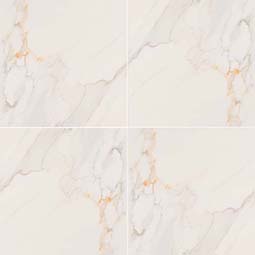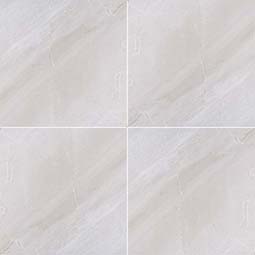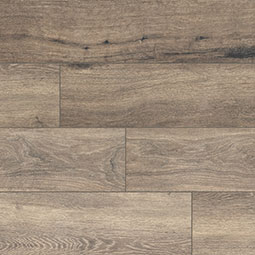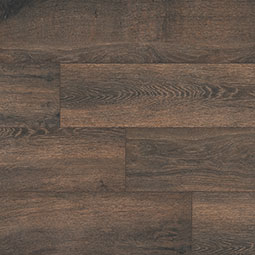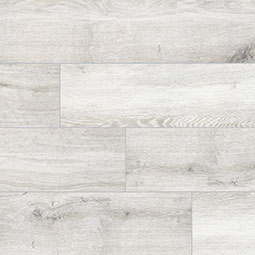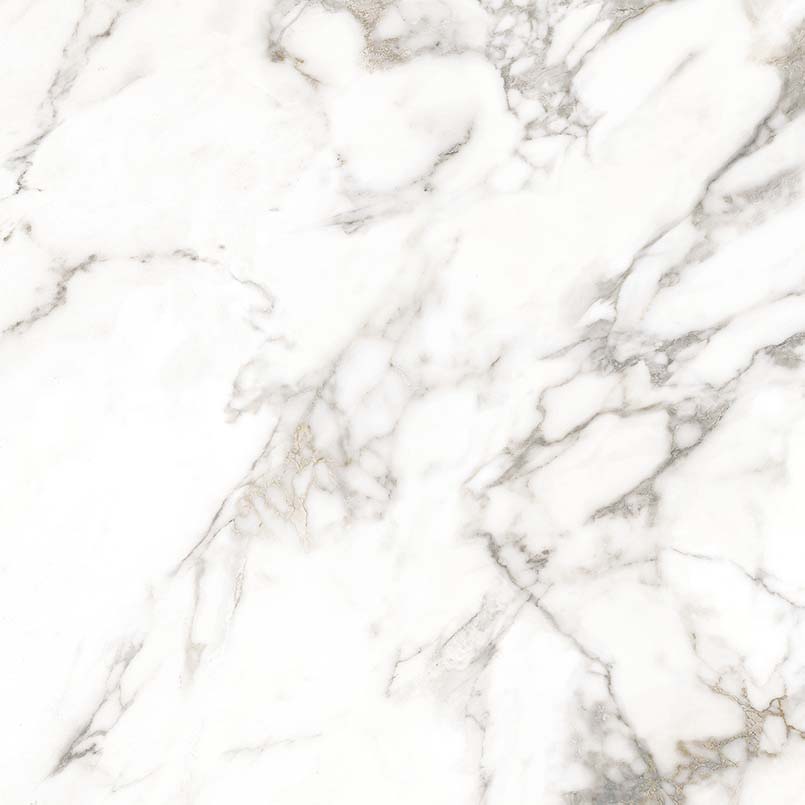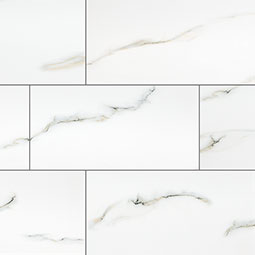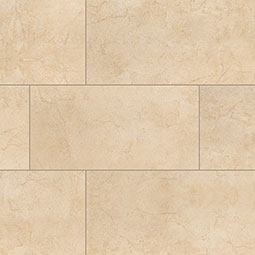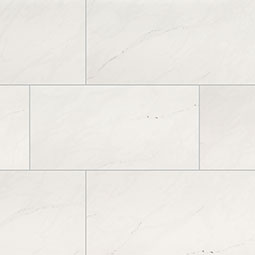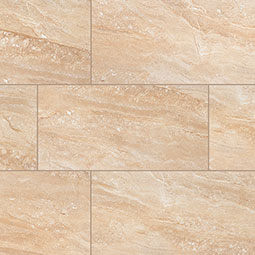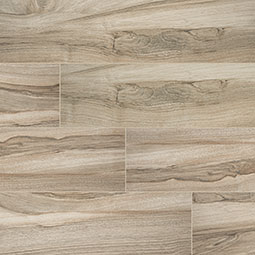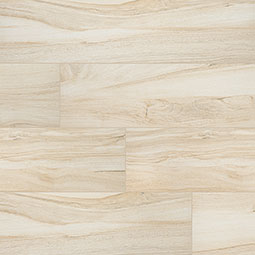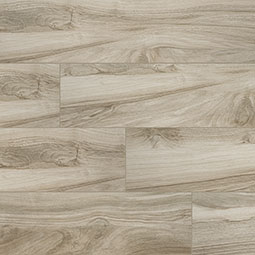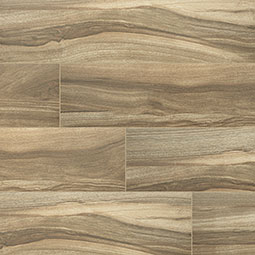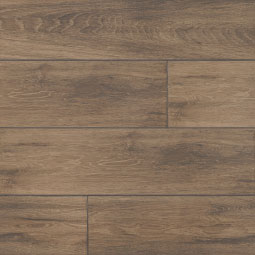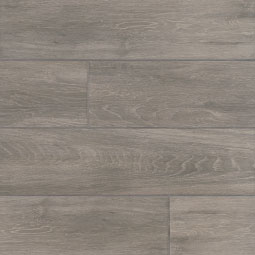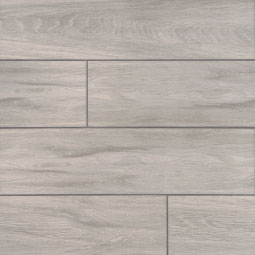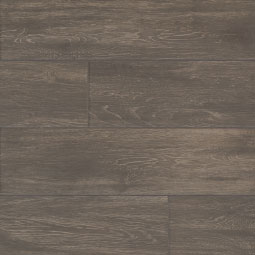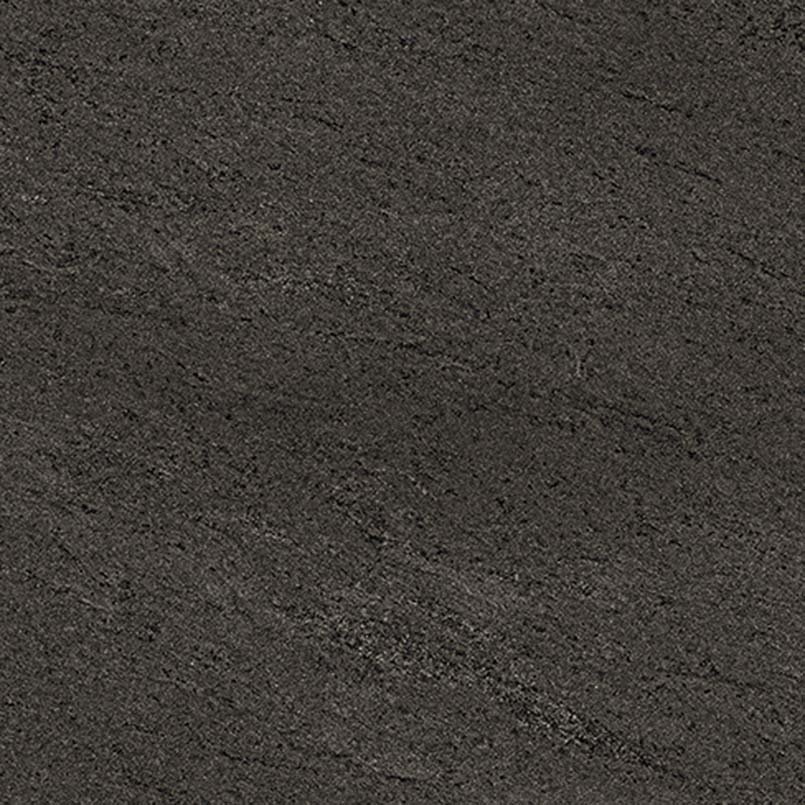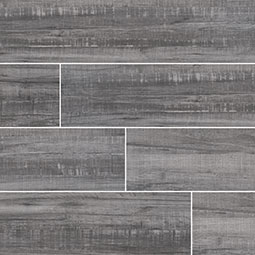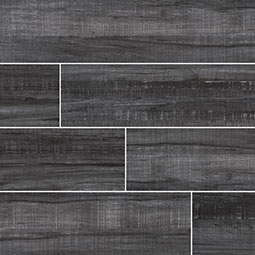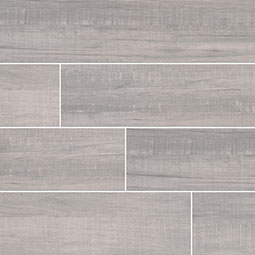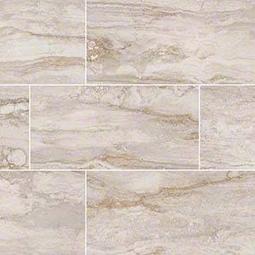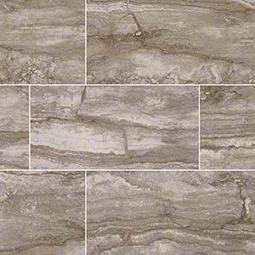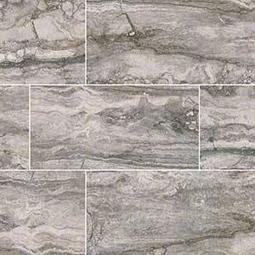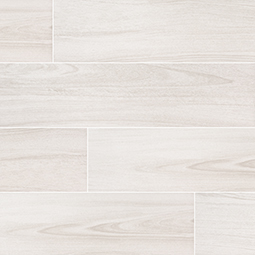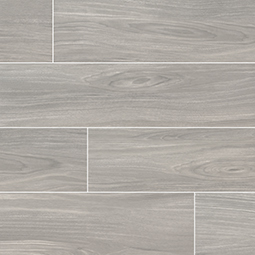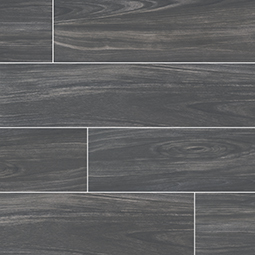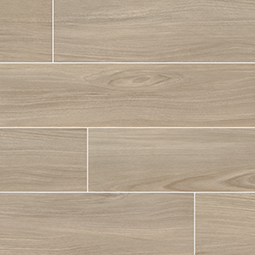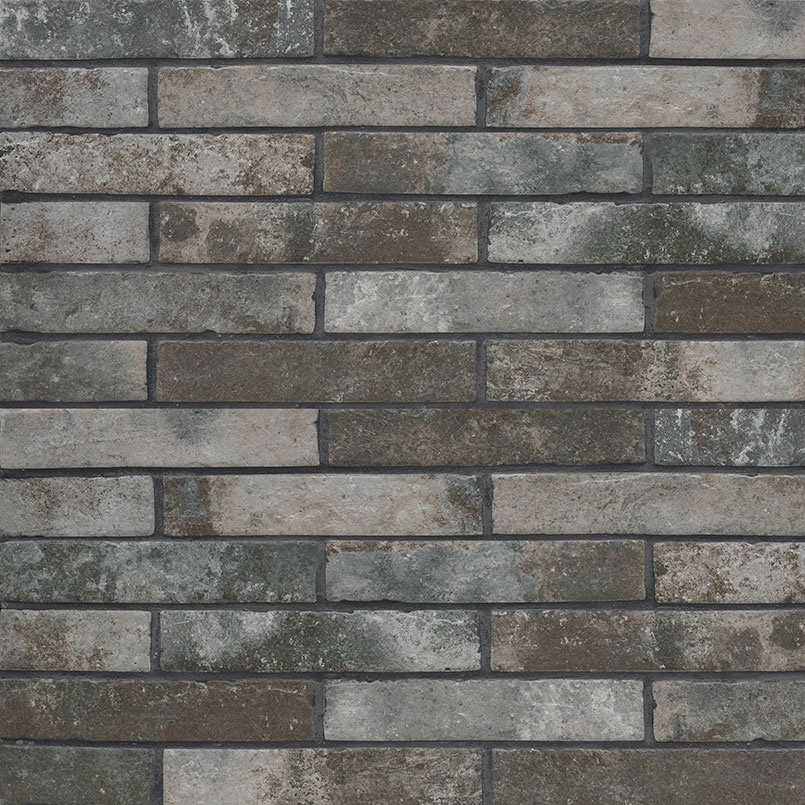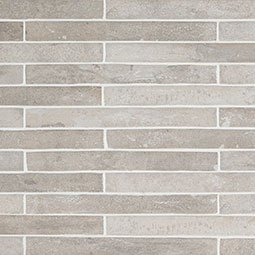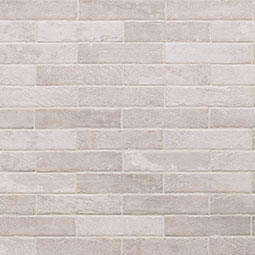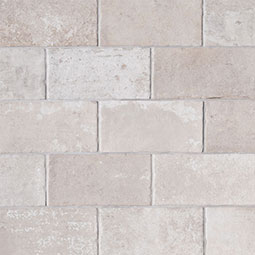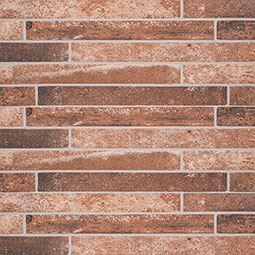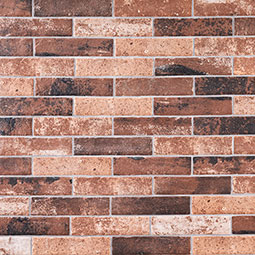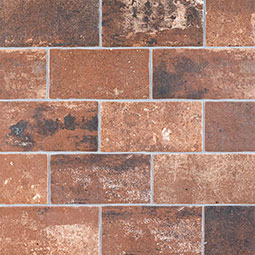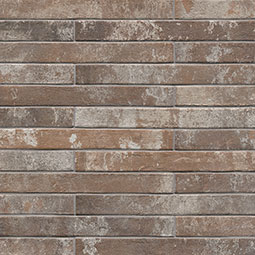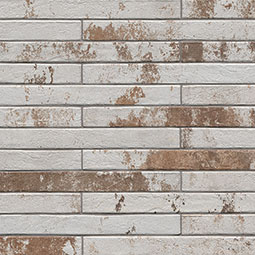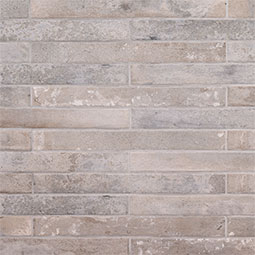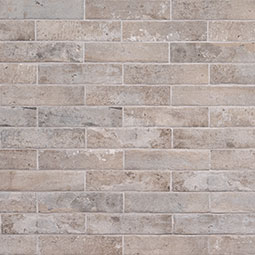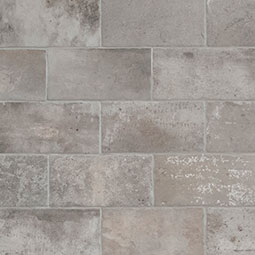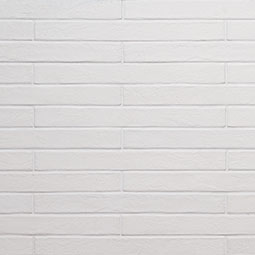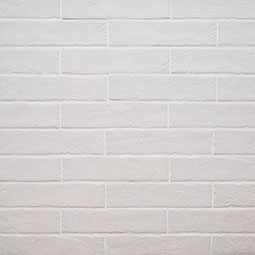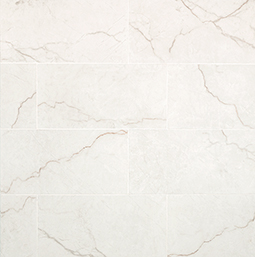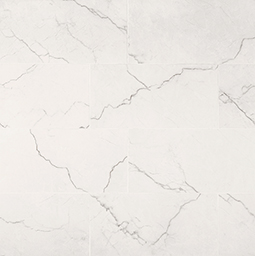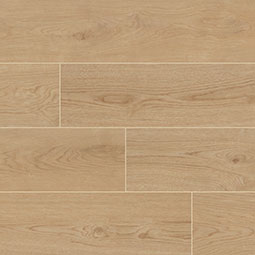LEARN MORE ABOUT PORCELAIN AND CERAMIC TILE
Porcelain and ceramic tiles, both widely chosen for various applications, have unique characteristics shaped by their composition and manufacturing processes. Ceramic tiles are made of a natural clay mixture combined with water and various minerals. After being shaped, they undergo a drying process followed by firing in a kiln. On the other hand, porcelain tiles are formed using fine clay, feldspar, sand, and other minerals and are subjected to a high temperature firing process, giving them a dense finish.
When it comes to density and durability, ceramic tiles possess a balanced density that makes them versatile and easy to handle, especially during cutting or installation. In contrast, porcelain tiles, with their high density, stand out for their resilience, especially in high-traffic areas. Water absorption is another differentiating factor: ceramic tiles have a natural porosity, but with proper sealing, they serve a multitude of applications exceptionally well. Porcelain tiles, characterized by their low porosity, are naturally resistant to moisture, making them suitable for environments with high moisture content.
Aesthetically, ceramic tiles offer a broad range of designs and colors, typically applied to the top layer, providing diverse aesthetic options for homeowners and designers. Porcelain tiles have a unique feature where their design often runs consistently through the tile, proving advantageous in the event of minor chipping. In terms of cost, ceramic tiles present excellent value and are a popular choice for a variety of projects, while porcelain tiles, though sometimes priced at a premium, offer durability and longevity that translate to long-term value.
Porcelain and ceramic tiles, known for their durability and beauty, need regular care to maintain their appearance and longevity. With consistent cleaning and occasional deep cleaning, these tiles can stay in prime condition for years, ensuring their lasting beauty and durability.
Regular Cleaning
Sweeping: Sweep or vacuum the tiles regularly to remove loose dirt and debris. This prevents scratches from gritty substances that might be dragged across the surface.
Mopping: Use a damp mop with warm water. For tiles in high traffic areas, mopping may be needed more frequently.
Deep Cleaning
Detergent: Use a mild detergent mixed with warm water. Avoid using acidic or alkaline cleaners as they can damage the tile's surface or erode the grout.
Tile Cleaners: There are specific tile cleaners available in the market for both porcelain and ceramic tiles. Ensure you choose a product compatible with your tile type.
Brushing: For stubborn stains or grime, use a soft brush to scrub gently. Avoid steel wool or any abrasive materials as they can scratch the tile.
Grout Cleaning: Grout can become discolored over time. Use a mixture of baking soda and water to form a paste. Apply this paste to the grout lines and scrub using a soft brush.
There are also commercial grout cleaners available. Ensure you follow the manufacturer's instructions when using them.
Preventive Measures
Use doormats at entrances to minimize the amount of dirt and grit being brought onto the tile flooring. Install protective pads under furniture legs to avoid scratches. Immediately clean up any spills, especially acidic ones like citrus or tomato sauce, to prevent potential staining.
Sealing: While porcelain tiles generally don't require sealing due to their low porosity, ceramic tiles, especially the grout lines, might benefit from sealing to prevent moisture absorption and staining. If you choose to seal your tiles or grout, ensure you use a product specifically designed for the type of tile and grout you have.
Flooring safety is crucial, especially in areas with moisture and water. Wet areas like bathrooms, kitchens, and outdoor spaces pose a challenge as they can be slippery and dangerous. MSI's porcelain and ceramic tiles offer a solution. These tiles are not only durable and visually pleasing, but they can also be engineered to provide better slip resistance, making them perfect for wet environments.
MSI is a leader in slip resistant flooring. They have developed flooring with their own ZeroSlip™ technology to make wet areas safer. This technology provides a higher level of slip resistance, keeping spaces beautiful and safe. Choosing tiles with ZeroSlip technology gives homeowners and businesses added security and peace of mind. With MSI's advanced flooring options, you can confidently walk on wet surfaces without worrying about slipping.
Porcelain and ceramic tiles are flooring, and wall coverings known for their unique characteristics, versatility, and beauty. And their adaptability across different design styles, from contemporary to classic, makes them a favored choice for homeowners and designers alike.
Porcelain tiles are known for their denseness, achieved through a high-temperature firing process and a refined clay mixture. Porcelain tiles naturally resist moisture, making them a popular choice for environments that frequently encounter water, like bathrooms or outdoor areas. Their compact nature also makes them resilient to heavy foot traffic, ensuring they retain their charm even in bustling areas.
Ceramic tiles offer a balanced blend of strength and adaptability. Their slightly more porous nature than porcelain makes them exceptionally receptive to glazes, allowing for various designs, colors, and finishes. This quality and durability make ceramic tiles a popular choice for interior wall applications and floorings in areas with moderate traffic.
When it comes to tile options, both porcelain and ceramic have impressive durability that can meet different requirements and preferences. Porcelain is ideal for areas with high moisture and heavy foot traffic, while ceramic offers versatility in design and works well for home with moderate traffic. By selecting the right material based on its strengths, both types of tiles can provide lasting beauty and longevity.
Flooring safety is important, especially in areas with moisture and water exposure. Wet areas, such as bathrooms, kitchens, and outdoor spaces, present a challenge in this regard, as they can become slippery and hazardous. This is where porcelain and ceramic tiles from MSI step in to offer a solution. Not only are these tiles durable and aesthetically appealing, but they also can be engineered to provide enhanced slip resistance, making them ideal for wet environments.
MSI is an innovator in slip resistant flooring improving safety without compromising on style. Manufactured with their proprietary ZeroSlip technology, MSI flooring is specifically designed to reduce the risks associated with wet areas. This innovative technology offers an elevated level of slip resistance, ensuring that spaces remain both beautiful and safe. For homeowners and businesses alike, choosing tiles with ZeroSlip technology means adding an extra layer of security and peace of mind. Whether it's the splash from a shower or an outdoor patio after a rain, with MSI's advanced flooring options, one can confidently tread with stability and assurance.





